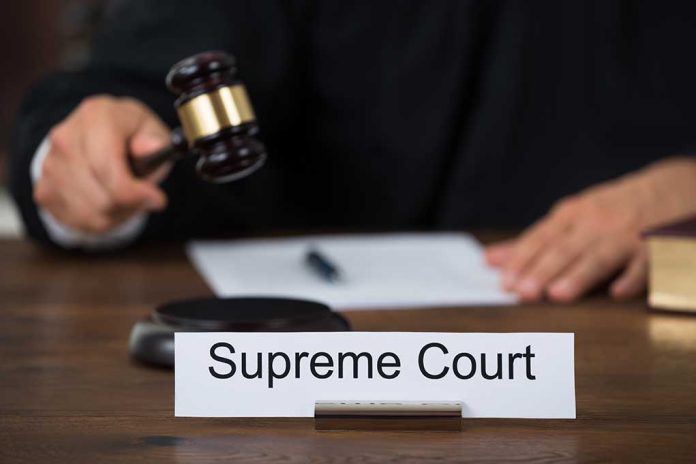
A Georgia death row inmate’s request for execution by firing squad has been denied, sparking debate over capital punishment methods and constitutional rights.
Key Takeaways
- Michael Wade Nance’s request for execution by firing squad was denied by a federal judge in Georgia.
- Nance argued that lethal injection would cause cruel and unusual punishment due to his medical conditions.
- The U.S. Supreme Court previously ruled that Nance could challenge Georgia’s lethal injection protocol under federal civil rights law.
- The case raises questions about the constitutionality of execution methods and state laws governing capital punishment.
- Nance’s lawyers plan to appeal the decision, potentially leading to further legal scrutiny of execution practices.
Federal Judge Denies Firing Squad Request
U.S. District Judge J.P. Boulee has rejected death row inmate Michael Wade Nance’s request to be executed by firing squad instead of lethal injection. Nance, convicted of murder in 1993 and sentenced to death in 1997, argued that lethal injection would cause him severe pain due to his compromised veins and potential ineffectiveness of the sedative used. However, Judge Boulee ruled that Nance failed to provide sufficient evidence to support his claim of potential severe pain from lethal injection.
The decision comes after a complex legal journey that reached the U.S. Supreme Court. In a 5-4 ruling, the high court had previously determined that Nance could challenge Georgia’s lethal injection protocol under federal civil rights law, reversing an earlier decision by the 11th Circuit Court of Appeals.
Michael Wade Nance, on Georgia's death row for a 1993 murder, argued that lethal injection could cause him severe pain due to his medical history and proposed a firing squad as an alternative. https://t.co/KBZMP27iTc
— FOX 5 Atlanta (@FOX5Atlanta) February 15, 2025
Constitutional Considerations and Legal Precedent
The case has raised important questions about the intersection of state laws and federal constitutional rights in the context of capital punishment. Justice Elena Kagan, writing for the majority in the Supreme Court decision, emphasized that Section 1983 of federal civil rights law can be used to compel changes in state laws to protect federal constitutional rights stating, “Nance’s requested relief still places his execution in Georgia’s control. If Georgia wants to carry out the death sentence, it can enact legislation approving what a court has found to be a fairly easy-to-employ method of execution.”
This ruling opened the door for Nance to propose alternative execution methods, even if not currently authorized by Georgia law. However, the burden of proof remains high for inmates challenging execution methods. The U.S. Supreme Court requires evidence of a substantial risk of harm and the existence of feasible alternatives.
Medical Evidence and Expert Testimony
During the proceedings, conflicting medical testimonies were presented. A state doctor testified that Nance had previously undergone medical procedures requiring IVs without issues, challenging the claim of compromised veins. On the other hand, a doctor called by Nance’s lawyers suggested uncertainty about the potential effects of lethal injection on Nance.
Judge Boulee ultimately found the evidence insufficient to prove that lethal injection would cause Nance severe pain. As a result, the judge did not address the firing squad argument, as the threshold for considering alternative methods was not met.
Future Implications and Appeals
Nance’s legal team has announced plans to appeal the decision, potentially leading to further scrutiny of execution methods and their constitutionality. The case highlights the ongoing debate surrounding capital punishment and the methods used to carry it out. As states grapple with these issues, the legal landscape continues to evolve.
As the case moves forward, it will likely contribute to the broader national conversation on the ethics and legality of various execution methods. The outcome may influence future challenges to execution protocols and potentially shape state policies on capital punishment.
Sources:
Justices rule for Georgia inmate seeking execution by firing squad
Judge denies Georgia death-row inmate’s request for firing squad
Judge rejects request from Georgia death row inmate to be executed by firing squad







